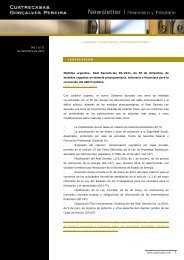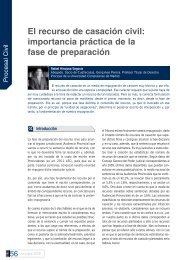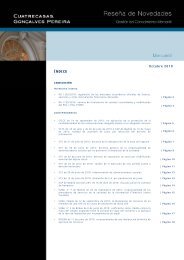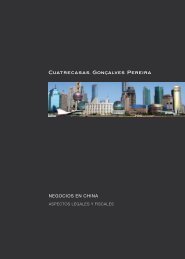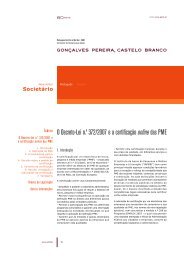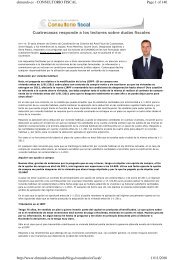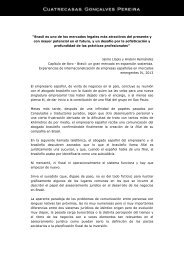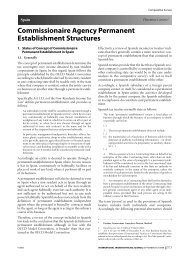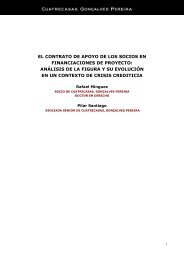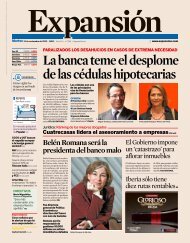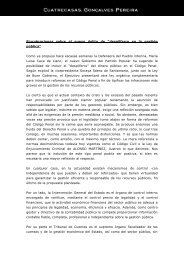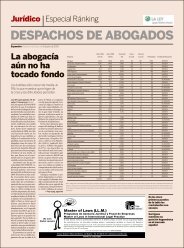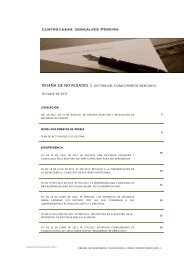NEWSLETTER I FISCAL TAX - Cuatrecasas
NEWSLETTER I FISCAL TAX - Cuatrecasas
NEWSLETTER I FISCAL TAX - Cuatrecasas
Create successful ePaper yourself
Turn your PDF publications into a flip-book with our unique Google optimized e-Paper software.
(Case n.º 05979/12)<br />
In this judgment, the Supreme Administrative Court devoted himself on the subsidiary<br />
liability regime, under article 13.º, n.º 1 CPPT.<br />
The court considered that the fact that there is no legal presumption in that article<br />
stipulating that the proof of de iure management also serve as proof of de facto<br />
management implies that «the burden of proof from the assumption of liability manager<br />
shall be on the Treasury and includes the exercise de facto management».<br />
It is, therefore, concluded that manager’s subsidiary liability can only be effective when<br />
de facto management is proved.<br />
South Central Administrative Court<br />
Judgment of 27 November 2012<br />
(Case n.º 05908/12)<br />
In this judgment, the South Central Administrative Court devoted himself on the<br />
expiration date in tax law and carried out the distinction between compensatory interest<br />
and default interest.<br />
With regard to the first questions, after explaining the statute of limitation concept under<br />
the tax law, the court considered that said regime, under article 45.º LGT, is not<br />
triggered ex officio.<br />
Moreover, further clarifies that the regime does not apply to acts of corrective<br />
settlements the court considered because they do not cot the new act nature.<br />
Finally, with regard to the second question, the court considered that, despite of the<br />
default and compensatory interest are likely to be due to the Treasury, «provide a<br />
compensation for the creditor […] and can configure itself as a genuine penalty clause»<br />
assuming, thus, a delayed settlement.<br />
Rather, the default interest «assumes that the tax already paid was not paid within the<br />
period described by law or by the Tax Authorities ».<br />
Supreme Administrative Court<br />
Judgment of 28 November 2012<br />
(Case n.º 0649/12)<br />
In this judgment, the Supreme Administrative Court explained the concept of “literary<br />
work” for purpose of tax benefit under n. os 1 and 2 of article 56. EBF in the version<br />
before the republishing made by Decree-Law n.º 108/2008, June, 26.<br />
WWW.CUATRECASAS.COM <strong>NEWSLETTER</strong> I <strong>FISCAL</strong> I <strong>TAX</strong> 16/18



